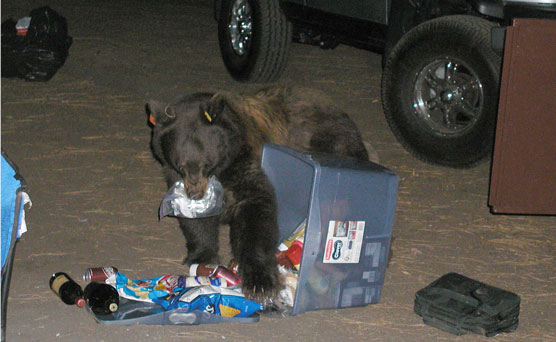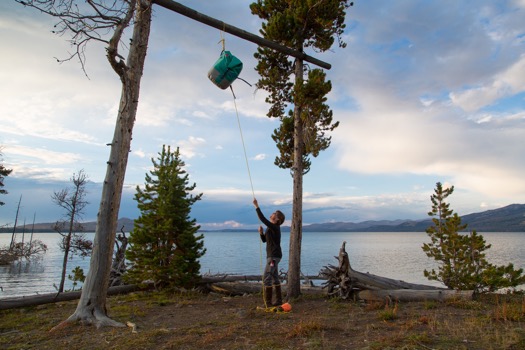Practical Ways to Keep Food From Animals

Keeping food out of the reach of opportunistic animals in the wilderness is very important, but it’s also a topic that is rarely discussed. The good news is that it doesn’t take a lot of effort to make your site as animal-proof as possible. Let’s take a look at a few practical strategies that can reduce the chances animals eating or stealing your food. These steps can also help to reduce the risk of attracting critters to your site in the first place.
Out of Sight Out of Mind

The first thing to remember is that animals are attracted to smells. While it is true that some that are familiar with human activity in their neck of the woods know that food is around, the majority of animals will not be drawn to the site. Consequently, keeping food and the smell of food will usually prevent attracting any unwanted attention in the first place.
One of the best ways to accomplish this, aside from following some of the methods mentioned below, is to store your food away from your sleeping and living areas. A common rule of thumb is to keep items around 100 feet away in areas that are known for bears and 50 feet away for areas that host other opportunistic critters. Secondly, it’s important that you completely remove any leftovers and scraps from the area once you’ve eaten. Don’t bury food underground near the site, don’t dump items in a river or stream, and wash dishes away from your living area as well. This will reduce the amount of lingering smells that can attract animals.
Use Appropriate Containers

Make sure that you are storing food in appropriate, airtight containers in order to keep odors at bay. Containers also prevent animals from seeing food laying around that may tempt them into coming into your site. The containers that you use should be designed to keep out the animals that you expect to encounter in order to be effective. For example, a simple plastic container with a lid that has a latch will help to keep smaller animals from getting inside. However, you will need something much stronger when it comes to fending off bear and other, larger animals.
Another trick is to bag and store food in their original containers whenever possible before placing them inside of the larger ones. This will add an extra layer of protection and go a long way with keeping odors inside.
Use a Tree
One time-tested trick is to put your food in a sheet, tarp or container and hang it from a sturdy tree branch. All you need to do is place the food in the center of the material, fold it over the top and then tie it off with some cordage. Take the other end of the cordage, tie some rocks or other heavy objects to serve as a counterweight, and toss it over the branch. Pull down on the weighted end of the cordage and the food will lift off of the ground.
The trick is to find the right tree. You want a branch that’s about 20 feet off the ground that can support the weight of the food. You also want to place the rope at least five feet from the trunk of the tree to prevent animals from reaching over and grabbing the bag or container. Make sure that you allow the food to dangle at least 10 feet above the ground and 5 feet below the branch. This will prevent the vast majority of animals from being able to reach your stockpile. Finally, make sure that you secure, and preferably hide the weighted end of the rope so animals don’t find a way to manipulate it in order to lower the food to the ground.
Use Your Vehicle

Unless you’re in bear country, chances are that you can store your food in the trunk of your car if it is not too hot. You can also place it in the passenger compartment and crack the windows just enough to provide air circulation inside, but not big enough to allow animals to sneak inside. This is a good idea for items that will not spoil from being inside the hot vehicle, but other, more perishable foods are best kept outdoors.
These are just a few things to think about when it comes to protecting your food. Make sure that you give serious thought to how you will store and protect your food supply in the wilderness so that you don’t invite pillaging as well as various threats associated with coming into close contact with hungry and opportunistic poachers.

